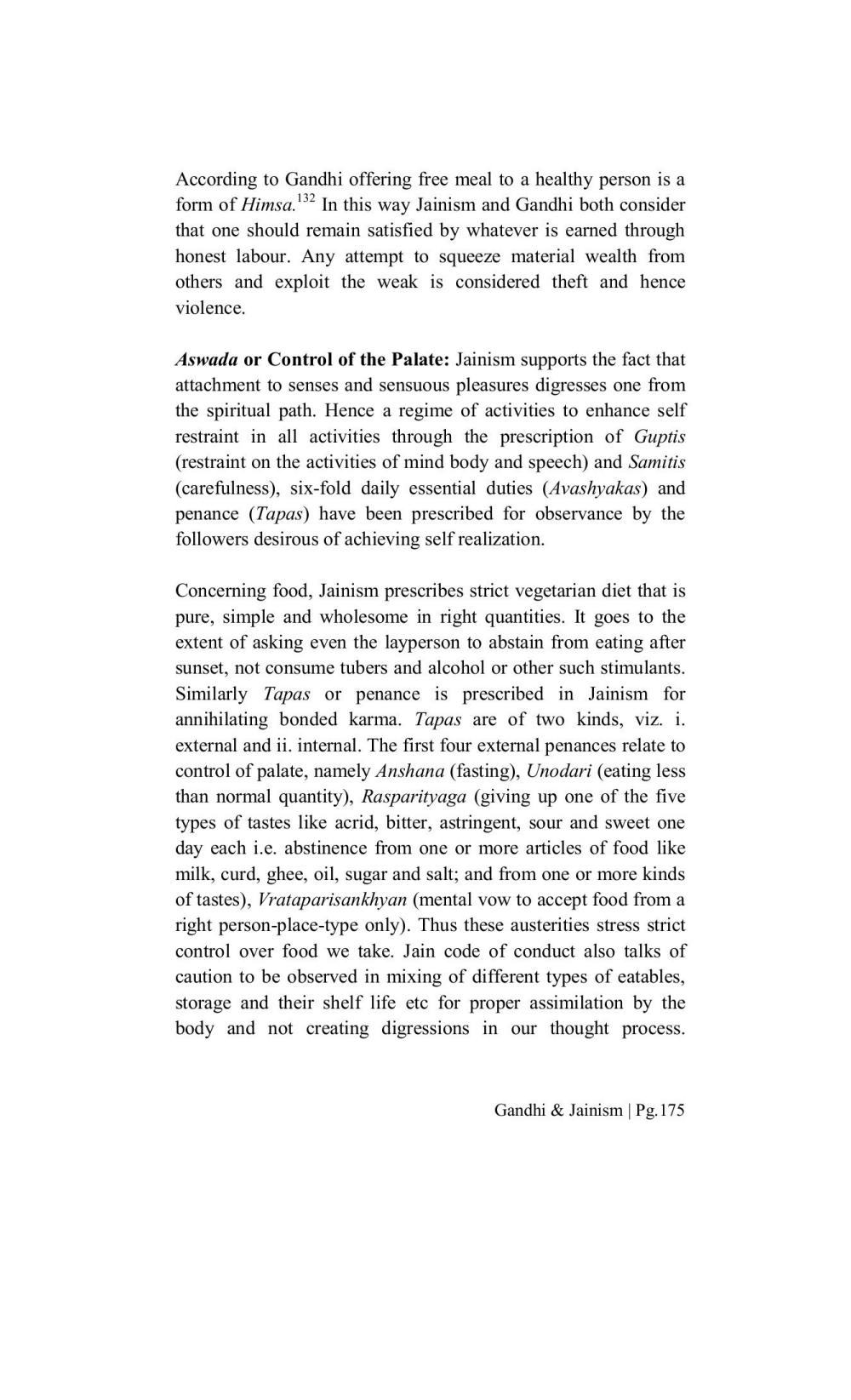________________
According to Gandhi offering free meal to a healthy person is a form of Himsa,132 In this way Jainism and Gandhi both consider that one should remain satisfied by whatever is earned through honest labour. Any attempt to squeeze material wealth from others and exploit the weak is considered theft and hence violence.
Aswada or Control of the Palate: Jainism supports the fact that attachment to senses and sensuous pleasures digresses one from the spiritual path. Hence a regime of activities to enhance self restraint in all activities through the prescription of Guptis (restraint on the activities of mind body and speech) and Samitis (carefulness), six-fold daily essential duties (Avashyakas) and penance (Tapas) have been prescribed for observance by the followers desirous of achieving self realization.
Concerning food, Jainism prescribes strict vegetarian diet that is pure, simple and wholesome in right quantities. It goes to the extent of asking even the layperson to abstain from eating after sunset, not consume tubers and alcohol or other such stimulants. Similarly Tapas or penance is prescribed in Jainism for annihilating bonded karma. Tapas are of two kinds, viz. i. external and ii. internal. The first four external penances relate to control of palate, namely Anshana (fasting), Unodari (eating less than normal quantity), Rasparityaga (giving up one of the five types of tastes like acrid, bitter, astringent, sour and sweet one day each i.e. abstinence from one or more articles of food like milk, curd, ghee, oil, sugar and salt; and from one or more kinds of tastes), Vrataparisankhyan (mental vow to accept food from a right person-place-type only). Thus these austerities stress strict control over food we take. Jain code of conduct also talks of caution to be observed in mixing of different types of eatables, storage and their shelf life etc for proper assimilation by the body and not creating digressions in our thought process.
Gandhi & Jainism Pg. 175




